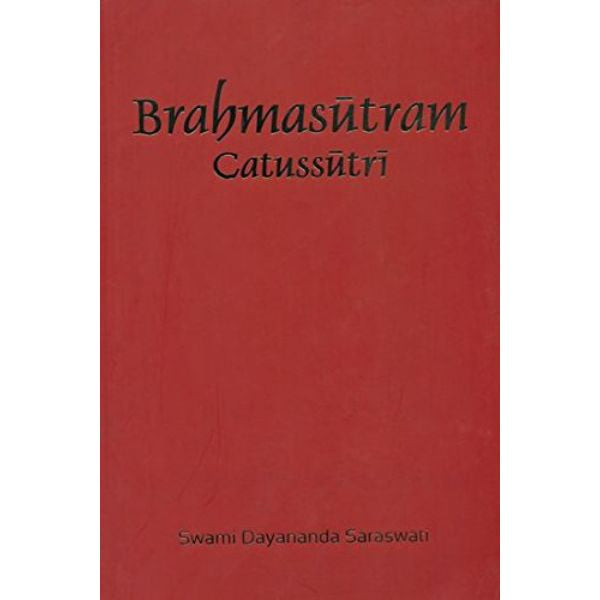
Brahmasutram Catussutri- English | Swami Dayananda Saraswati/ Vedanta Philosophical Book For Spiritual Clarity
•"Brahmasutram Catussutri" is an essential text in the Vedanta tradition of Hindu philosophy. Written by the ancient sage Badarayana, also known as Vyasa, it is a concise exposition of the fundamental principles of Vedanta.
•Composed in the form of sutras (aphorisms), the "Brahmasutram Catussutri" consists of four chapters, each focusing on a specific aspect of Vedantic inquiry.
These sutras serve as the foundation for various commentaries and interpretations by later scholars, making it a central text in the study of Vedanta.
•The first chapter, known as "Samadhi," discusses the nature of Brahman, the ultimate reality or cosmic consciousness, and asserts its supreme status. It explores the concept of Brahman as the cause of the universe and emphasizes the importance of spiritual realization.
•The second chapter, "Sadhana," deals with the means of attaining knowledge of Brahman, emphasizing the importance of scriptural study, meditation, and devotion in the spiritual journey.
•The third chapter, "Phala," discusses the fruits of knowledge, highlighting the liberation (moksha) that comes from realizing one's true nature as Brahman.
•The final chapter, "Kaivalya," expounds upon the nature of liberation, describing the state of absolute freedom and transcendence that is attained upon realizing the identity of the individual soul (jivatman) with Brahman.
•"Brahmasutram Catussutri" is revered for its concise and profound elucidation of Vedantic philosophy, which has been a subject of contemplation and debate among scholars and seekers for centuries.
